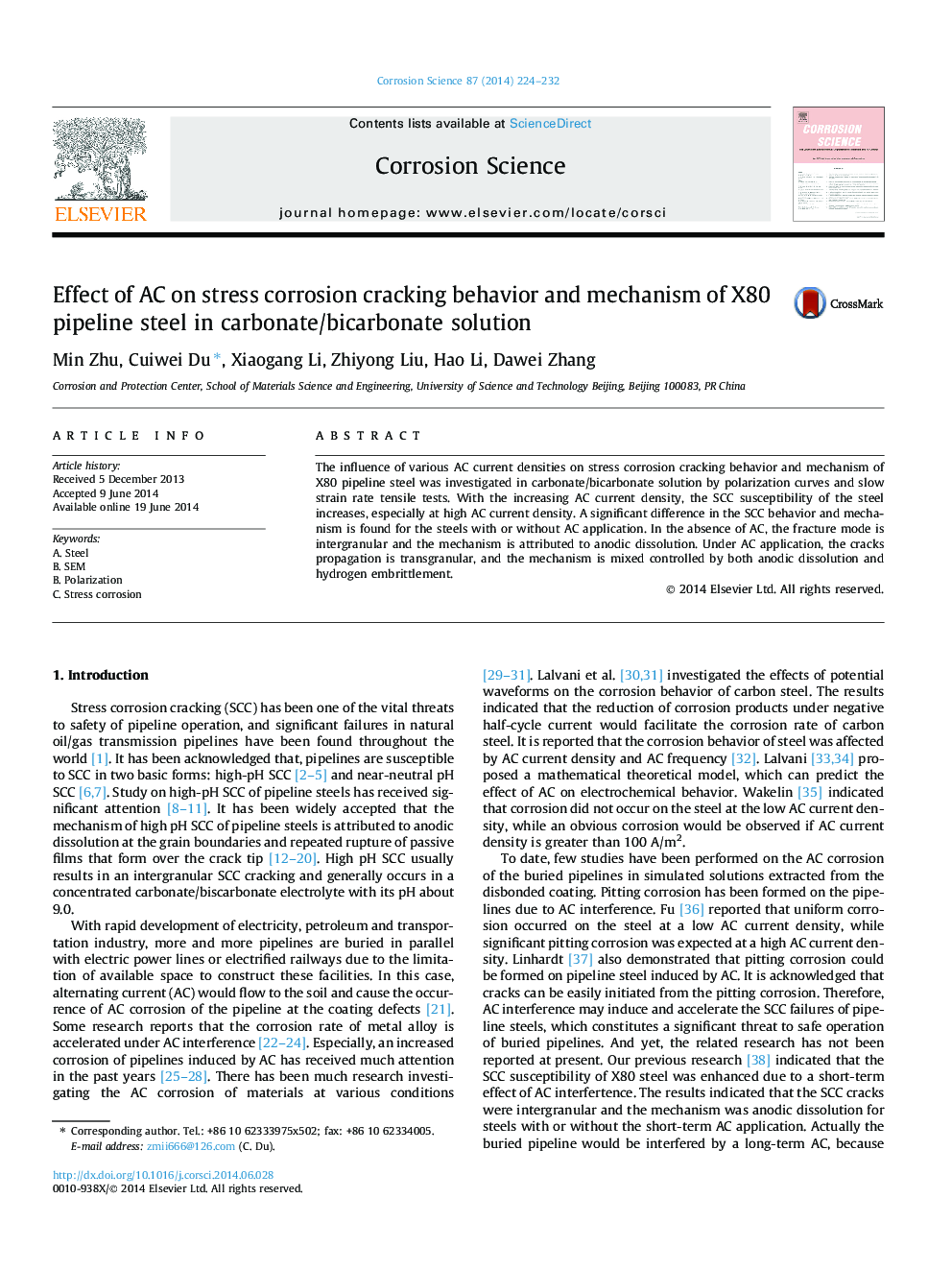| Article ID | Journal | Published Year | Pages | File Type |
|---|---|---|---|---|
| 1468729 | Corrosion Science | 2014 | 9 Pages |
•Under application of AC current, the passivity of steel degrades severely.•Without AC, the fracture is intergranular and the mechanism is anodic dissolution.•Under an applied AC, the cracks are transgranular.•With AC current, the mechanism is anodic dissolution with hydrogen embrittlement.•With the increasing AC current density, the SCC susceptibility of steel increases.
The influence of various AC current densities on stress corrosion cracking behavior and mechanism of X80 pipeline steel was investigated in carbonate/bicarbonate solution by polarization curves and slow strain rate tensile tests. With the increasing AC current density, the SCC susceptibility of the steel increases, especially at high AC current density. A significant difference in the SCC behavior and mechanism is found for the steels with or without AC application. In the absence of AC, the fracture mode is intergranular and the mechanism is attributed to anodic dissolution. Under AC application, the cracks propagation is transgranular, and the mechanism is mixed controlled by both anodic dissolution and hydrogen embrittlement.
